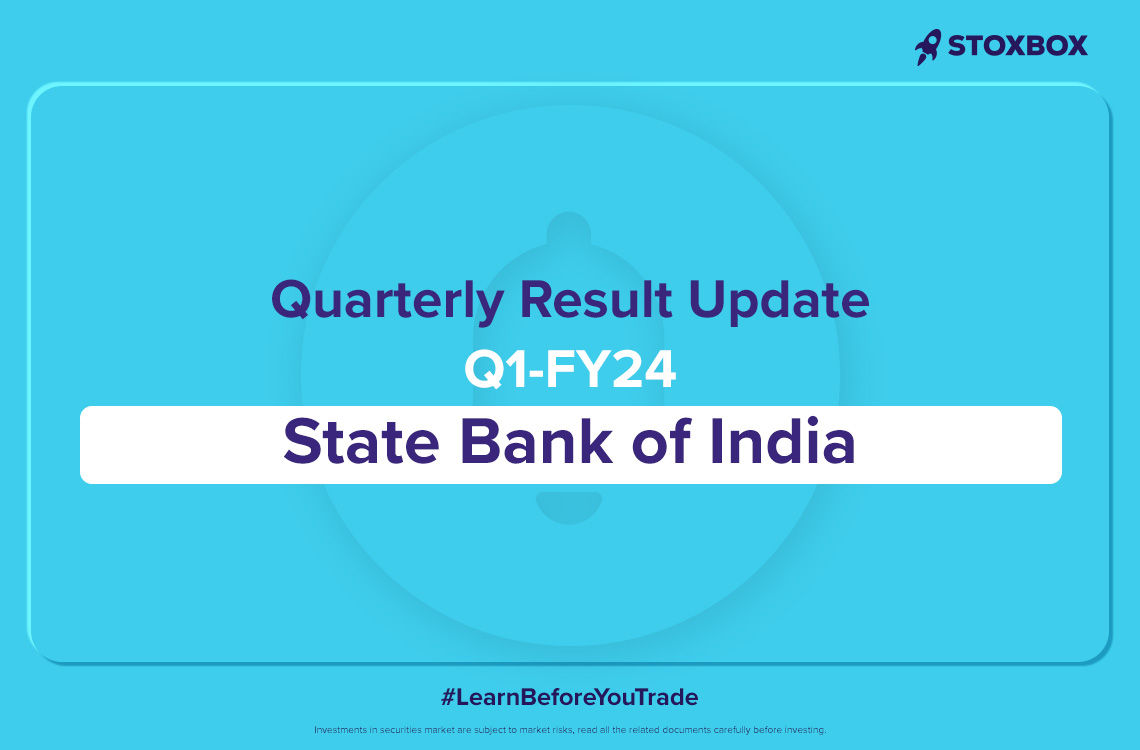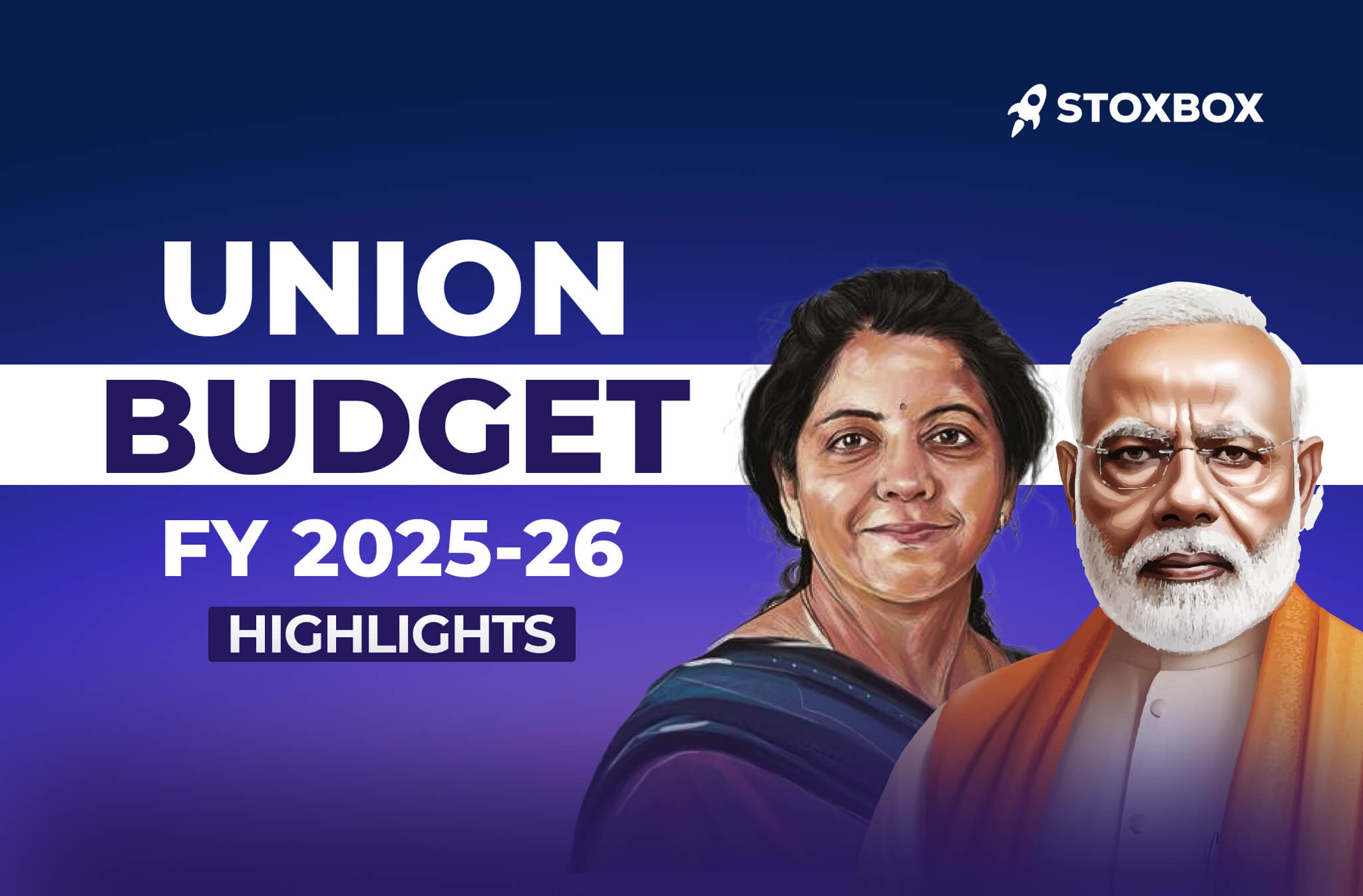Check out the latest quaterly result for Q1FY24 of State bank of India
Table of Contents
Net Interest Income stood at Rs. 38,905 crores in Q1FY24, showing a decline of 3.7% QoQ / up 24.7% YoY and missing market estimates of Rs. 40,738 crores. Pre-provision operating profit (PPOP) stood at Rs. 25,297 crores in Q1FY24, showing a decline of 2.7% QoQ / up 98.4% YoY. Provision showed a sharp decline to Rs. 2,501 crores in Q1FY24, down from Rs. 3,316 crores in Q4FY23 and Rs. 4,392 crores in Q1FY23 due to the prudent asset quality management. The bank reported the highest-ever quarterly profit of Rs. 16,884 crores in Q1FY24, up 1.1% QoQ /up 178.3% YoY and well above market estimates of Rs. 15,838 crores. NIM stood at 3.33% in Q1FY24, down 27 bps QoQ / up 31 bps YoY. Gross NPA stood at 2.76% in Q1FY24, down 2bps QoQ / down 115 bps YoY.
Net NPA stood at 0.71% in Q1FY24, up 4bps QoQ / down 29 bps YoY. The slippage ratio for Q1FY24 stood at 1.38%. Credit Cost for Q1FY24 stood at 0.61%, down 29 bps YoY. Capital Adequacy Ratio showed an improvement to 14.56% in Q1FY24 from 14.68% in Q4FY23 and 13.43% in Q4FY22. Gross Deposits stood at Rs. 45,31,237 crores in Q1FY24, up 2.4% QoQ / up 12% YoY. Gross Advances stood at Rs. 32,35,023 crores in Q1FY24, up 1.1% QoQ / up 14.9% YoY. CASA stood at 45.33% in Q1FY24 compared to 43.80% in Q4FY23 and 42.88% in Q4FY23.
Key Concall Highlights
- Non-interest income has increased 421.7% YoY, mainly due to the MTM write-back as well as gains booked in derivative income.
- Operating expenses rose 23.7% YoY as the bank started building provisions for the wage revision, which have fallen due from November 2022.
- Domestic advances grew in the high teens, supported by retail personal advances and corporate advances.
- The gross NPA ratio stood at 2.76% and continues to be at its lowest level in more than 10 years.
- Digital continues to be a vital customer acquisition engine for the bank across asset as well as liability products. During the quarter, they have sourced 63% of savings bank accounts and 35% of retail asset accounts digitally through YONO.
- The bank has a non-NPA provision of Rs. 34,955 crores which is almost about 152% of the entire net NPA.
- The bank’s retail loans have grown at 17% CAGR for more than 3 years and the management is confident that it will grow at the same pace as their home loan sanctions are up to the extent of 15% to date.
- In rural advances, the bank is able to bring the NPAs down from 15% in previous years to 11% in the current quarter. The management is further aiming to bring it down to a single digit in FY24.
- The bank expects NIM to stand at 3.47% for FY24.
- SBI has a policy of reporting gross slippages that are adjusted against recoveries/ upgradations from slippages in previous quarters of the same fiscal year. As a result, gross slippages have a tendency to decline sequentially as we move ahead in the fiscal year. Hence, it is preferable to look at net slippages when comparing sequential delinquencies. Net slippages for 1QFY24 were much more contained at ~0.5% of net advances owing to the strong trend in recoveries/ upgrades.
Valuation and Outlook
State Bank of India reported the highest ever quarterly profit for the consequent second quarter in Q1FY24. Although the bank reported a net profit which jumped three times on an annual basis, its net interest income missed market expectations. The bank’s absolute profitability improved mainly on account of healthy growth in its fee income, commission income and cross-selling. We believe that the outlook of the bank remains positive, with asset quality improving going forward as the bank tends to account for high slippages in the first quarter of every financial year.
However, with some NIM compression due to peaking out of interest rates, we expect NIMs to remain stable in the forthcoming quarters. With India’s credit growth sustaining, we believe that SBI will lead the pack due to its right product mix. As compared with private banks, PSU bank’s loans have a higher proportion linked to MCLR and the excess liquidity in the balance sheet suggests that SBI should be able to sustain its current NIM.
Click here to view the detailed report.
You might also Like.
Union Budget 2025-26 Impact on Sectors
Edit Announcement Impact Companies Enhancing the credit guarantee cover for...


